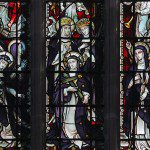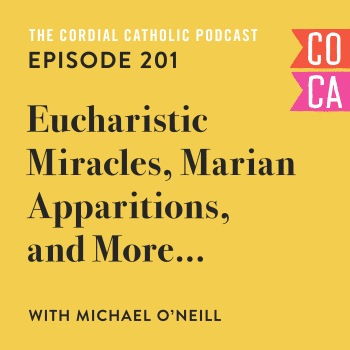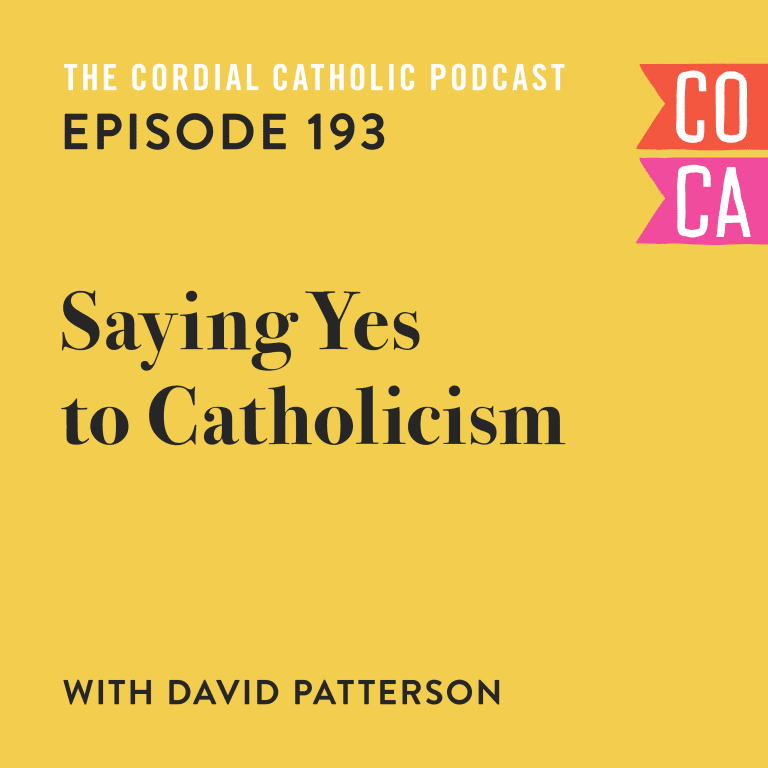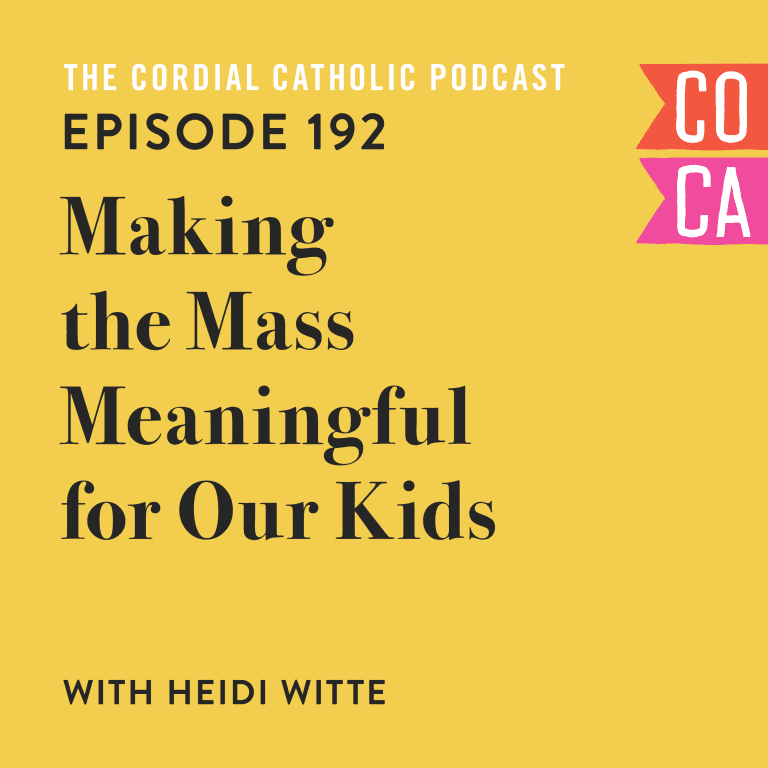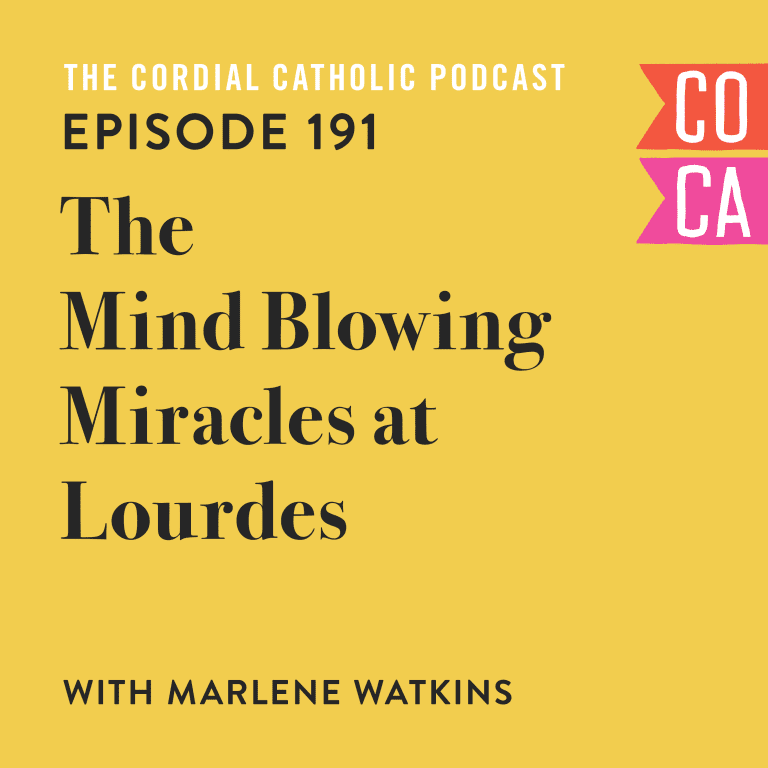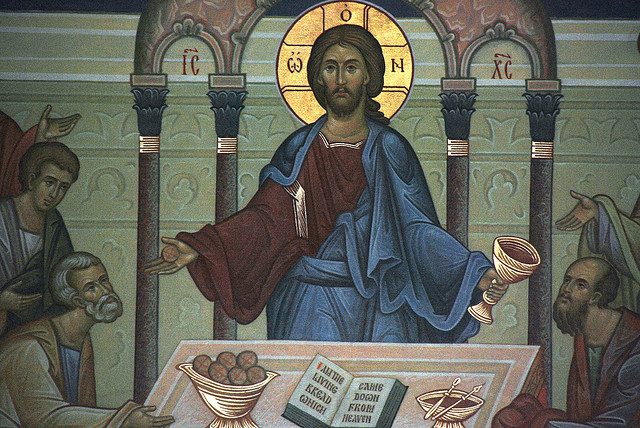
As I’ve been headed down this journey towards becoming a Catholic there have been lots of new discoveries—hidden treasures—that have got me really excited. Last time, when I wrote about the saints, I wrote about the excitement of discovering that there were thousands of holy Christians out there who’ve gone before me, who are ready, willing, and poised to pray for me. I called it a hidden treasure because that’s what it felt like—the saints had been there all along (I now believe) but I didn’t know about them. The discovery was incredible and I wanted to tell everyone I know about it.
Another incredible discovery, and something that genuinely has shaken me to the core, has been learning about the incredible theology behind the Eucharist. In this same spirit, I want to tell you what I’ve learned. I want to tell you because it’s exciting and I can’t believe I didn’t know about this before. I want to tell you because the point and purpose of this site is to politely explain the Catholic faith I’m diving headlong into.
That headlong dive? Well, this is exactly one of the reasons behind it, and maybe the biggest one. This, for me, was huge and rich and beautiful. This blew my mind.
As a Protestant I had a very loose grasp on many of the differences between my faith and the faith held by the Catholic Church. I knew, at least in some sense, that they believe Jesus was really present in the elements of Communion. I knew this was different than my belief, as a Pentecostal Christian, where Communion was merely symbolic. I knew that Catholics celebrated the Lord’s Supper at every since Mass—it was central to the Mass—and that we, as Pentecostals, only celebrated once a month. And I knew that whatever was going on with Communion in the Catholic Church it was important enough that I, as a Protestant, wasn’t allowed to fully take part (because I couldn’t fully understand it).
So I looked into the Catholic theology and, quite honestly, what I began to read made my brain do cartwheels.
Jesus Was Speaking Literally
The first thing that had to be explained to me was the biblical roots of the Eucharist. The main theological sticking point for many Protestants—excepting many high-church denominations like Anglicans and Lutherans—is the actual presence of Jesus in the Eucharist. Before beginning this journey I would’ve stubbornly sworn that Communion was merely a symbolic act of memorial and that’s how Jesus would’ve wanted it—that He said that—but he also said other things too.
What I first learned about the Eucharist and it’s biblical roots was that Jesus says, literally, that we have to eat His flesh and drink His blood. He says this, and He isn’t using figurative language. In fact, the word that the inspired author, John the apostle, equates to Him telling us that we must gnaw on His flesh. Far from being misunderstood, Jesus emphasizes His meaning in graphic detail. We must eat Him.
For as much as we Protestants advocate for a “plain sense” reading of the Bible what could be more plain than taking Jesus at His words. That blew my mind.
He Didn’t Correct a “Misunderstanding”
The second thing that I learned about the biblical roots of the Eucharist was the importance of the reaction of the crowd at hearing Jesus’ controversial words. This, too, was mind-blowing.
In the sixth chapter of John’s gospel the apostle records this incredible exchange with his followers. When Jesus tells them that they must eat His flesh they don’t misunderstand His literal language. In fact, they respond, “How can this man give us His flesh to eat?” They take Him literally, even if we don’t.
Incredibly, instead of responding to say, “No guys, you got it wrong, I was speaking figuratively,” Jesus goes further. He says He is, indeed, the bread of life. We must, indeed, eat His actual flesh. And what happens next? He loses disciples. John records that, “many disciples drew back and no longer went with him.”
Now this is incredible.
Those that lived and learned with Jesus. His closest disciples and followers were often at odds with His teaching. It was couched in parables. It was unique. It was difficult. But how many times in the gospels does Jesus explain His difficult teaching to His closest disciples? All the time.
Here however, and uniquely, Jesus does not.
His words are interpreted literally. He loses disciples as a result (some scholars say lots of disciples). But He does not correct their literal interpretation. In fact what He does say to His disciples following the departure of many of their fellow followers is, “Are you going to leave too?” It’s Peter who poignantly recognizes, “Where else can we go?”
Jesus Literal Miracles Prefigure His Literal Words
Oh, and I truly almost forgot, but what does John record Jesus doing just before his discourse on His body and blood? He multiplies bread, at Passover, to feed five thousand. Then He walks on water. Hunger and thirst miraculously multiplied and tamed.
To me, this seemingly plain sense reading of John 6 draws an incredible conclusion. It struck me to the core in it’s incredible power and beauty. If Jesus was misunderstood, if He didn’t mean to be interpreted literally on such a fundamental teaching, why wouldn’t He correct his disciples—especially those closest to Him, those charged with transmitting the faith. If John didn’t understand the Eucharist to be the actual, miraculous, multiplying of Jesus’ actual body and blood why the two miracles so clearly foreshadowing?
(And Jesus was born in Bethlehem which means “House of Bread” and put into a manger which is a feeding trough!)
Mind blown.
But there’s more, and this was the terribly beautiful bit that pushed me over the edge: There is only one sacrifice.
The Universal Sacrifice of the Mass
The historical belief in the Eucharist as the blood and body of Christ is deeply, historically rooted. Sure heresies sprung up but councils were held and Church Fathers wrote about it and the Catholic understanding of the Eucharist was “catholic”—that is, universal—until the Reformation. Even the Orthodox schism kept, in tact, the teaching that Jesus was really present in the Eucharist. Even most of the earliest reformers, after the Reformation, believed in some kind of real presence of Jesus in the Communion elements.
What many would reject—and the misunderstanding that repels many modern day evangelicals—is the notion that Jesus is being re-sacrified if He really is present in Communion. But this is misunderstanding, and the truth is beautiful.
Catholic theology teaches that there was, indeed, only one sacrifice: Jesus’ death on the cross. Instead of a re-sacrifice, Jesus’ presence in the Eucharist is mysteriously and miraculously part of that same original sacrifice. The Eucharist that I will share, that Catholics share every day, every hour, all over the word, is the exact same Eucharist that the earliest apostles shared, that medieval Christians shared, that Jesus shared, with us, on the cross. These are all the same, one sacrifice, and this blew my mind.
That by receiving Eucharist in a parish church in Southern Ontario I would be linking up, in some kind of miraculous, historical time-space continuum, with every other Eucharistic celebration that has ever, and will ever, occur. And, as if that weren’t enough, with the Eucharistic celebration, according to Catholic theology, depicted on the altar in Heaven. It’s all the same.
Mind blown.
To me this was, in every sense of the thing, the discovery of an incredible hidden treasure. First, that Jesus meant what He said. That He didn’t correct those that left Him because they did understand Him and it was hard. And second, that I can take part, fully part, as a Catholic, in this one Mass, the one sacrifice of Jesus, that stretches out from His very offering on the cross to the very end of time. Above and beyond anything else I think that this is it, this is what draws me most to the Roman Catholic Church. This is incredible. This blows my mind.


